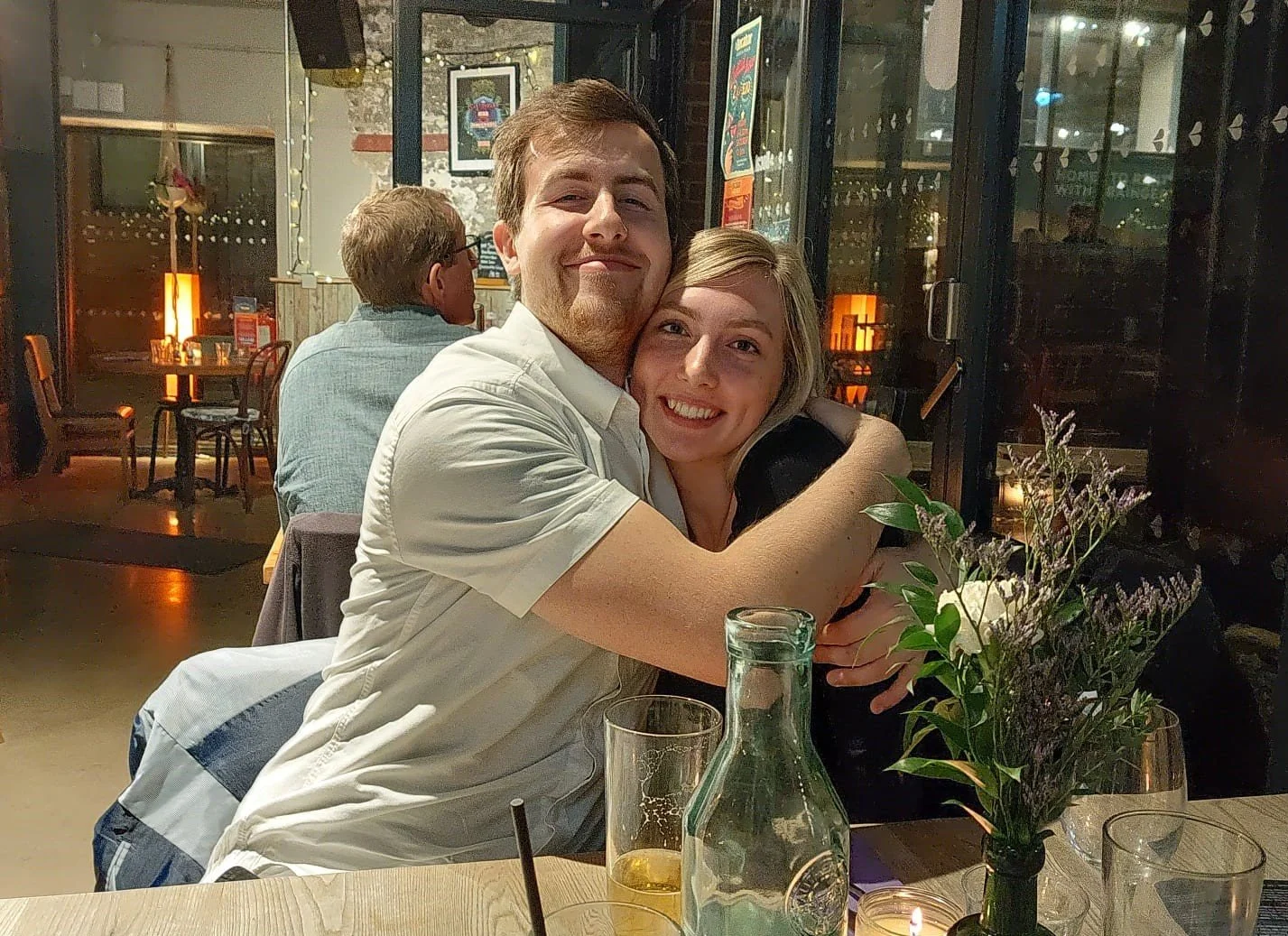Gracie’s story
Gracie and Laura
Gracie shares her story of finding out her sister had cancer and how she is now beginning to grieve following Laura’s death.
Gracie’s sister Laura died from glioblastoma multiforme, the most aggressive form of brain cancer in 2023. She was originally given just 12 months to live.
Gracie says Laura was the bravest person she has ever met.
“Laura was absolutely incredible, she was 18 when she was diagnosed, she never really cried, never moaned, never said ‘why me?’ she literally just got on with it and she was a lot more bothered about trying to make sure other people didn’t have to go through the same thing.”
Gracie was 16 years old when her older sister Laura was diagnosed.
“I think when you’re 16 you think you’ve got everything figured out. Looking back I was a baby, I was so little.
“You kind of just get on with it. People always ask, ‘how did you manage?’ ‘how did you cope? and you just do, because what else are you going to do? You have no other option, other than to carry on.”
In 2021, Peter Kay played his first gigs in four years to raise money for Laura’s treatment. She also worked through her bucket list of ambitions which included meeting Michelle Obama, graduating from university, and commanding a Royal Navy ship. She also raised vital funds and awareness for brain cancer research.
Gracie says Laura “took her diagnosis and thought, ‘I’m going to make something of this’”.
“She was just so positive throughout all of it, it quite often, was hard to remember she was even ill, she was an absolute force to be reckoned with. She crammed so much into that short space of time. She used to say she lived more in those four and a half years than most people do in a lifetime.”
Gracie says it was hard to adjust when Laura was diagnosed with cancer, “because all of a sudden I became the sister of someone who had cancer”.
“I went from being very, very normal, to all of a sudden you walk into a room, and everyone turns around and looks at you, and that’s quite hard to get your head around.”
Gracie says being at school during that time was a very bizarre experience.
“Being at home felt very safe. My mum, my dad, my sister, all understood what we were going through. I lost quite a lot of friends, and so did Laura. People didn’t know what to say, and sometimes it’s easier to say nothing.”
Laura died in May this year – and Gracie says she feels people forget about siblings and expect them to just carry on.
“It’s been nearly six months since Laura died, and it’s the first thing I still get asked ‘how are your parents?’. You get used to it, but it’s still quite hard.”
Gracie says charities like Sibling Support are so important to help siblings with their dialogue about sibling grief.
“It’s a lack of speaking about it. You hear about a lot about people who have lost parents, or children, or partners, but you don’t really hear anything about siblings. I don’t think it’s intentional, but people just blindly forget about siblings.”
Gracie says it’s not just about grieving the sibling who has died, but also grieving a future together.
“From being really little, we had all these plans, we always wanted to go to Paris together, you have got this whole life you’re imagining with them. I always thought she would be the aunty to my children and vice versa.
“You’ve lost that sibling that knew everything about your childhood and knew everything about you, and you’re also losing everything you thought you were just going to get.”
“I think it’s the firsts of everything. The idea of the seasons changing is difficult, thinking that we have left her behind in summer.
“It’s not been either of our birthdays yet, we’re both born in December, 10 days apart. December has always been mine and Laura’s month, both birthdays and Christmas, a really happy month. I know that’s going to be very, very difficult.”
Painting and writing are some of the creative outlets Gracie has been using to help manage her grief.
“I think it does help but it’s more of a distraction and being able to address the problem without sitting in a heap on the floor saying, ‘what do I do? my sister died.”
Gracie says she hasn’t fully started grieving yet but wants to encourage others to continue asking how someone is, even months after their sibling has died.
“I don’t want you to stop treating me like I’m delicate, because I feel I still am… Don’t stop asking how I am, I don’t want people to forget about her.
“I understand that she’s gone, and we’ve had the celebration of life, but I’m still waiting for her to come back and that absolutely has not shifted, and I thought that it would.
“I think that more the time passes, in a way, the harder it gets, because other people forget and assume you’re over it. Particularly from a sibling perspective and I think you want people to know it’s worse than it was. I feel worse now than I did the day that she died.”
Reflecting on their childhood, Gracie wants to share one of many memories of her and Laura.
“When we were kids, I went out and played out with our next-door neighbours when mum and dad left us home alone and told us not to go out, Laura stayed home (always following the rules). I fell over and ripped my pants up, cutting my knees. Laura, (who would normally grass me up for anything) ran me a bath, cleaned my cuts and hid the evidence. We never told mum and dad until a couple of years ago. She was an amazing sister.”






